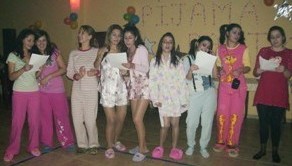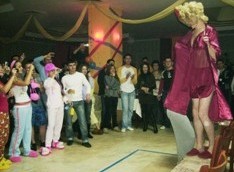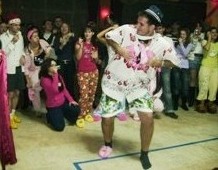can may permission prohibition
Can and May, 1
The theme of this unit is permission, being allowed to or having the right to do something; and its antonym, prohibition.
In English we use the modal auxiliary verbs can (which is less formal) and may (more formal), along with the more official be allowed to, and more rarely used, permit.
This is one of several meanings of the modal auxiliary verb can and may. For other meanings, see MODAL AUXILIARY VERBS.
Positive Sentence structures:
| Subject + can/may/be allowed to + verb-1 (base form). |
Examples:
• I can watch TV until 10:00 on Fridays and Saturdays. Mom said so.
• You may go with your friends—after you’ve done your homework.
• Visitors are allowed to take photos in the museum.
• Certain company personnel may work from home.
• Only customers are allowed to use the restroom.
Negative Sentence structures:
Negative sentences with can, may, must and be allowed to imply prohibition or something forbidden. Mustn’t is less official than can’t or may not, but stronger in terms of warning.
Must however, refers to obligation. See STRONG OBLIGATION.
We often use imperatives beginning with Do not, while warning signs start with No .
|
Subject + can’t/may not/mustn’t/be not allowed to + verb-1. Do not + verb-1. No + gerund (ing-form). |
Incorrect: mayn’t
Examples:
• You can’t park in front of that fire hydrant. That sign says, “No Parking”.
• Diners may not smoke in the restaurant. See that sign? “No smoking”.
• Non-residents are not allowed to work without a permit.
• “Private Property. Do not enter. Entry prohibited. No trespassing”.
• That’s private property; you can’t go there.
• You can’t swim in the pool today; it’s closed.
• You mustn’t swim in that pond; the water is slimy.
• You mustn’t say that word! Now apologize!
Yes-No Question Structures:
|
Can/May + subject + verb-1? Be + subject + allowed to + verb-1? |
Examples:
• May I enter the monastery? —> Yes, you may—but don’t touch anything.
• Can we wear shorts in the Club? —> Only if you are members.
• Am I allowed to use my cell phone here? —> No. Please go outside.
• Can we board the train now? —> Not yet…unless you have a first class ticket.
• May I go to the Pajama Party? —> No, you may not.


WH Question Structures:
|
WH-Q word + can/can’t + subject + verb-1? Who/What + can/can’t + verb-1? |
Examples:
• Why can’t I go to the Pajama Party? —> Because I said so! I won’t allow it!
• Where can we have our meeting? —> At Laura’s house!
• Who can cross the border without a visa? —> Everyone—except Jerry.


Answer the following questions or respond to the statements. Say why and give examples.
Government
1. People in democratic countries can (are allow to) _________
2. What can’t citizens of democracies do? What are they not allowed to do?
3. What are people living in a dictatorship (autocracy, totalitarian regime) not allowed to do?
4. What are people in dictatorships allowed to do?
5. What can and can’t democratically elected leaders do?
6. What are dictators, autocrats, tyrants allowed and not allowed to do?
Society
7. What can people in a liberal (open) society do? What can’t people in liberal societies do?
8. What can and can’t people in conservative and traditional societies do?
9. Do you prefer living in a conservative or liberal society, or somewhere in between?
10. Can Bram challenge and flout the traditions and conventions of his society?
Law and Justice
11. What can and can’t police officers do in democracies?
12. What can and can’t police officers do in non-democracies?

